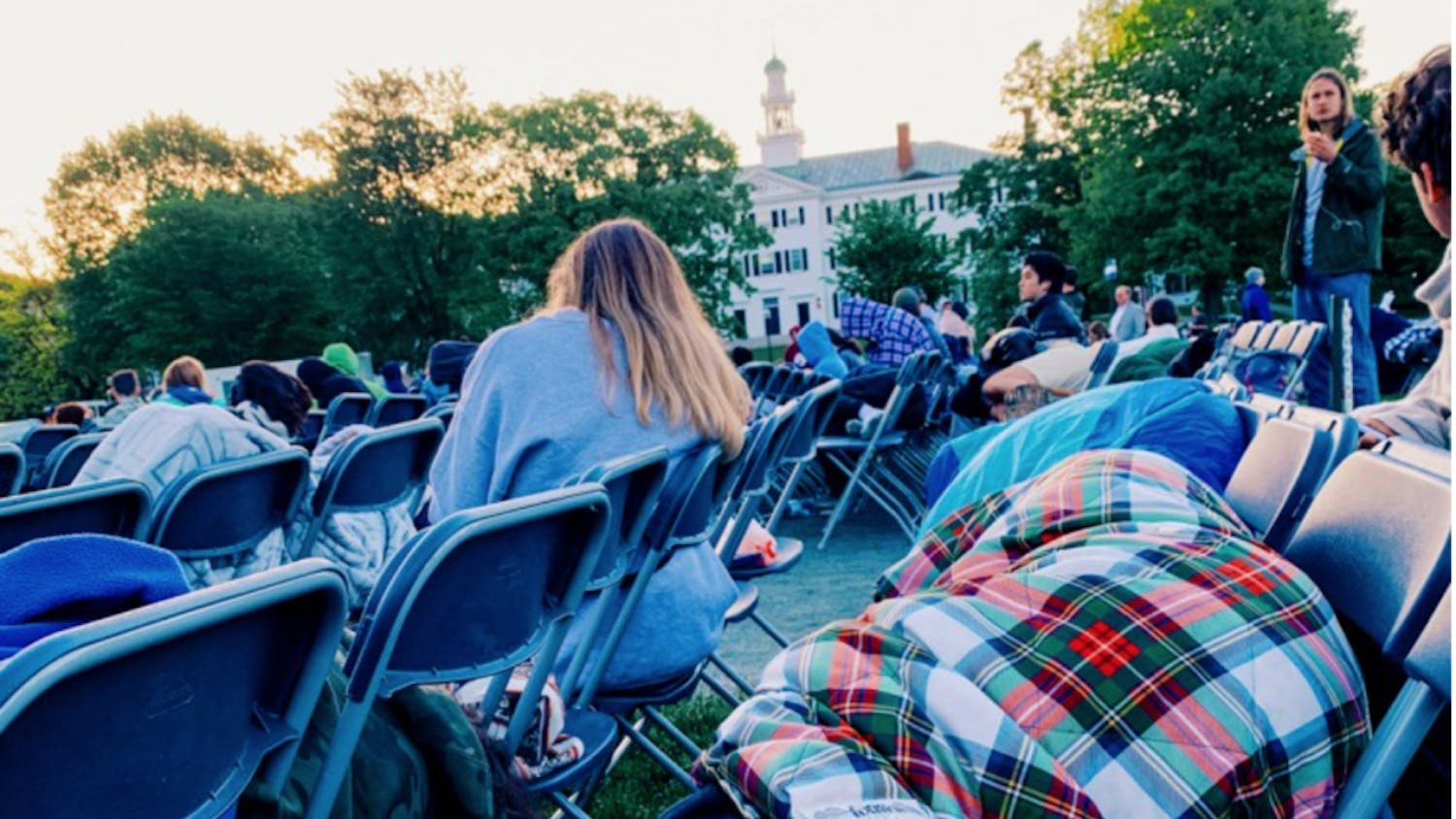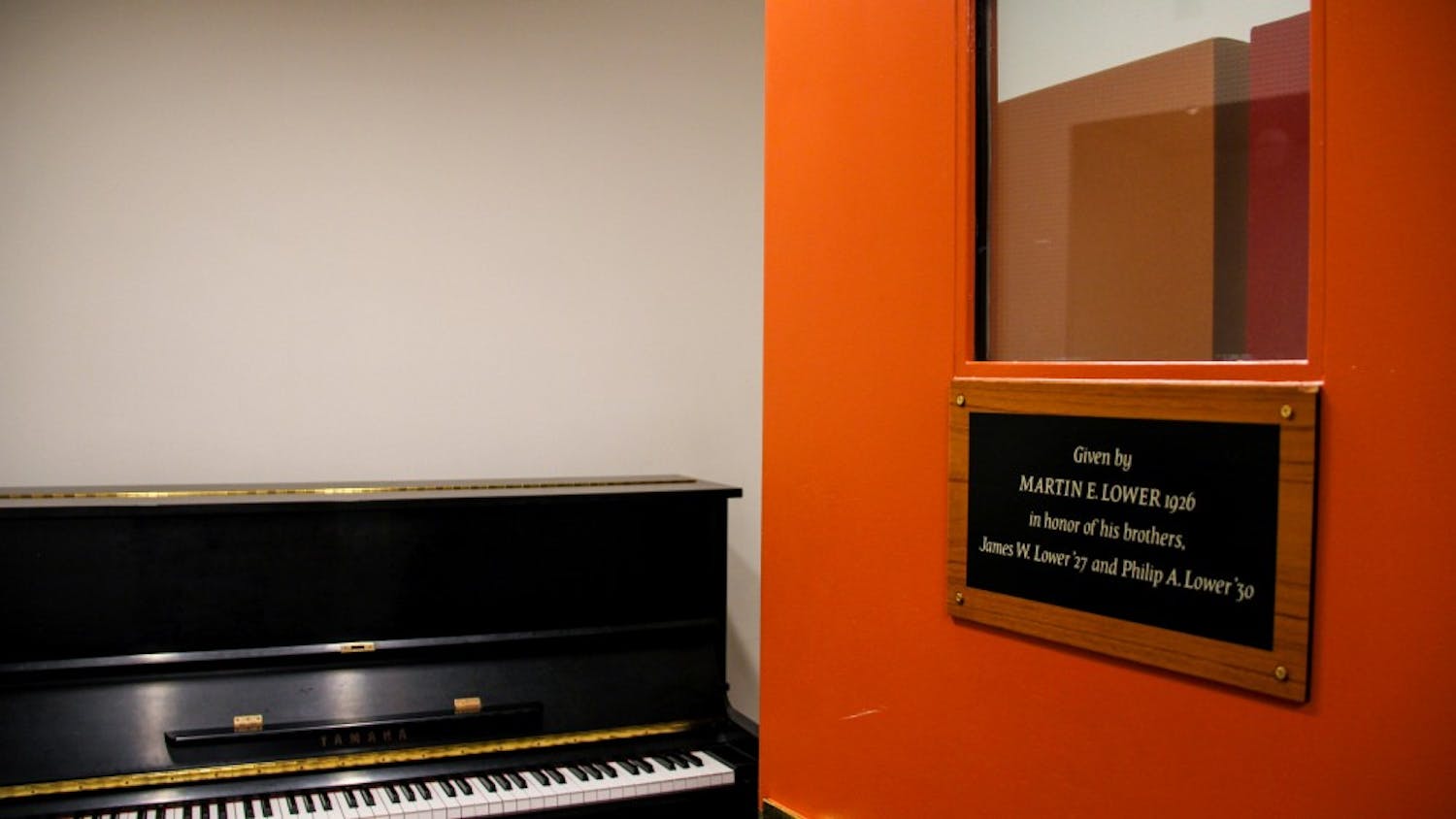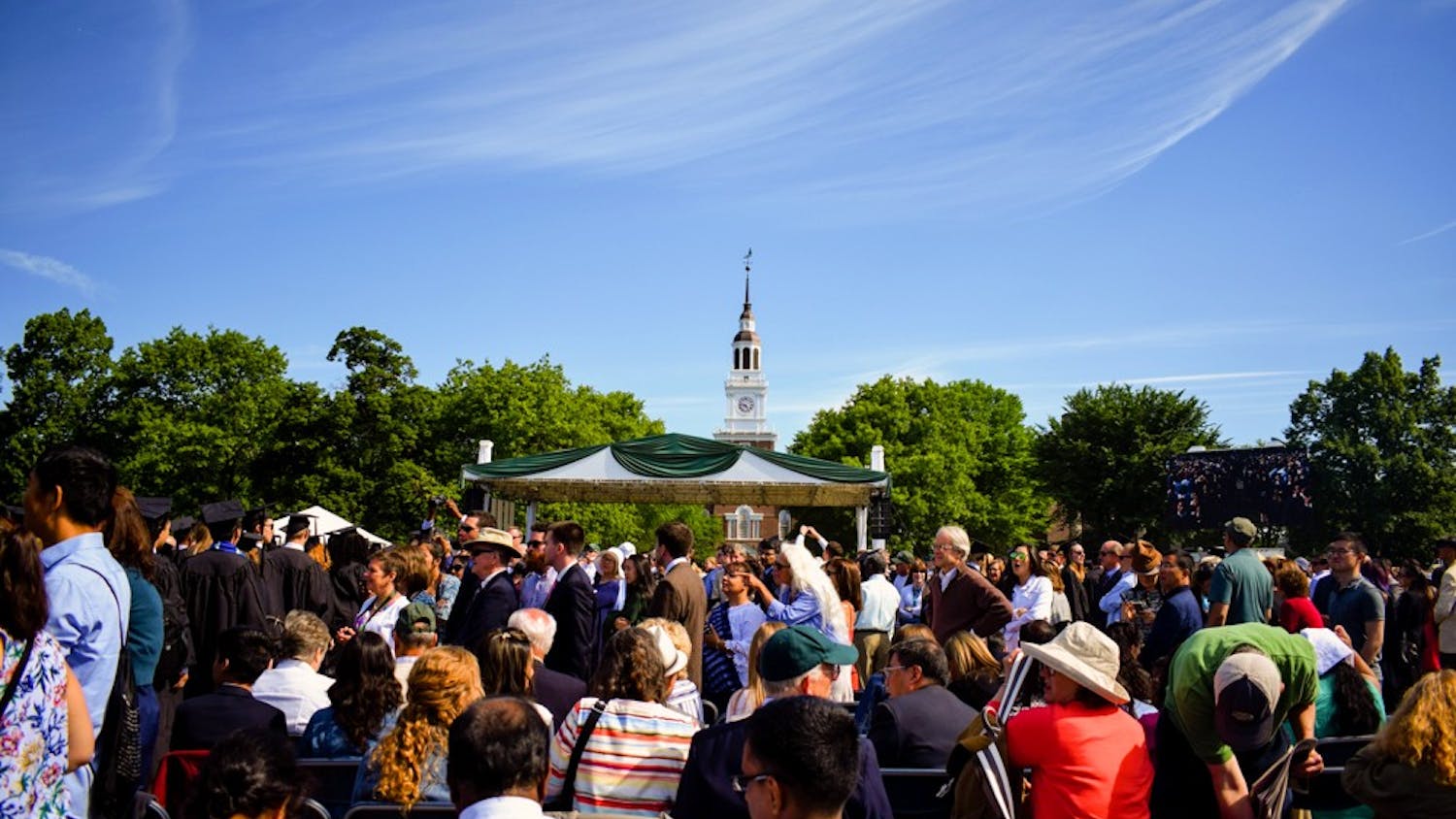Earlier this month, the College held its commencement ceremony for the Class of 2019. The event, highlighted by a speech and musical performance by renowned cellist Yo-Yo Ma, marked the successful culmination of four years at Dartmouth for the outgoing senior class. Thousands of family, friends and alumni gathered on the Green on a sunny day to view the ceremony and celebrate with the graduates.
For the last several years, commencement has brought with it the practice of "seat saving": a process in which individuals save up to three seats for family or friends of a graduating student, usually in exchange for payment. When the Green opened to the public at slightly before 5 a.m. on the day of the ceremony, a large crowd of mostly underclassmen and local high school students rushed to claim the prime seats. The scene has been described as a “wild” one, with people running, pushing and shoving in the early hours of the morning — and most of the best seats are claimed within minutes. Having secured the seats, savers remain in their seats until 8:45 a.m. at the latest, when audience members must be seated for the ceremony. Seat savers have reported being paid anywhere between $40 to upwards of $100 per seat by friends or families of graduates.
This is, no doubt, a strange spectacle to be juxtaposed with the pomp and circumstance that occurs just four hours later during the ceremony itself. Of course, for any kind of event with open seating, people naturally save seats — and there’s nothing inherently wrong with people wanting to make sure they have a good view and are sitting with people they know. But seat saving in the context of Dartmouth’s commencement has evolved into a practice involving a literal race to claim a finite number of “good” seats, and it has been going on for too long for the College to remain silent about it. In an article in today’s issue of The Dartmouth, the executive director of Dartmouth’s conferences and events office said that the College is aware of seat saving but does not condone it, adding that any seat saving occurs outside of the College’s oversight.
Dartmouth should not turn a blind eye toward seat saving: The College should reconsider its hands-off approach to seat saving because it is an unfair competition that detracts from the spirit of commencement.
The primary issue with seat saving at commencement involves fairness. If there is a relatively expensive de facto price to be paid to obtain the better seats, then relatively wealthier families and friends are logically more likely to be willing to pay that price. This creates a “pay to play” scenario in which low-income families and friends — who for some, commencement might be one of their only trips to Hanover — do not have the same ability to get as good seats. Of course, people can still technically view the ceremony from farther back or on the jumbotron without acquiring seat-savers. By allowing seat saving to occur, however, the College is — albeit unintentionally — implicitly accepting the fact that people with more financial resources can more easily claim the best seats.
Beyond the socioeconomic implications, seat saving engenders competition that forces parents to worry about whether they will have a relatively “good” seat for the ceremony — and this seems to go against the spirit of commencement more broadly. If commencement is a celebration of graduates and the conferring of their degrees, those closest to them and who have supported their collegiate journeys should be prioritized on the last day. Family members, especially parents, provide moral and financial support for students throughout the four years. What message, then, does the College send to parents — many of whom have already spent a significant amount of money to travel to Hanover and stay for the weekend — when they find out that the best way to secure good seats is to spend a few hundred dollars for a seat saver or get up at 3:30 in the morning to compete with students? Should graduates and their families really have to consider whether they want to participate in the seat-saving practice — which many find to be upsetting — or not?
The issue is not whether guests will be able to procure seats period — certainly, they will be able to see the stage from afar or through the jumbotron. Moreover, whether the seats are “good” may be an extraneous matter that the College would be unable to completely control. However, given the nature of seat-saving, the College should at least try to ameliorate the situation. The College could consider waiting until later in the morning to open the Green to make people more willing to claim their own seats or institute a system in which each student is given a certain number of tickets for family and friends and seat locations are randomly assigned. Each of these options have their pros and cons, and it is true that other institutions of Dartmouth’s size don’t require tickets for their commencements.
Ultimately, the practice of seat-saving takes away from the day that commencement should be, and the College should consider whether its policy of passivity toward the practice is worth reconsidering. Commencement is a proud and happy moment in the lives of graduates, their families and friends. Its spirit shouldn’t be tarnished by an atmosphere in which finding good seats is a free-for-all competition and a little bit of cash can buy one’s way to the best views.
The editorial board consists of opinion staff columnists, the opinion editors, both executive editors and the editor-in-chief.



